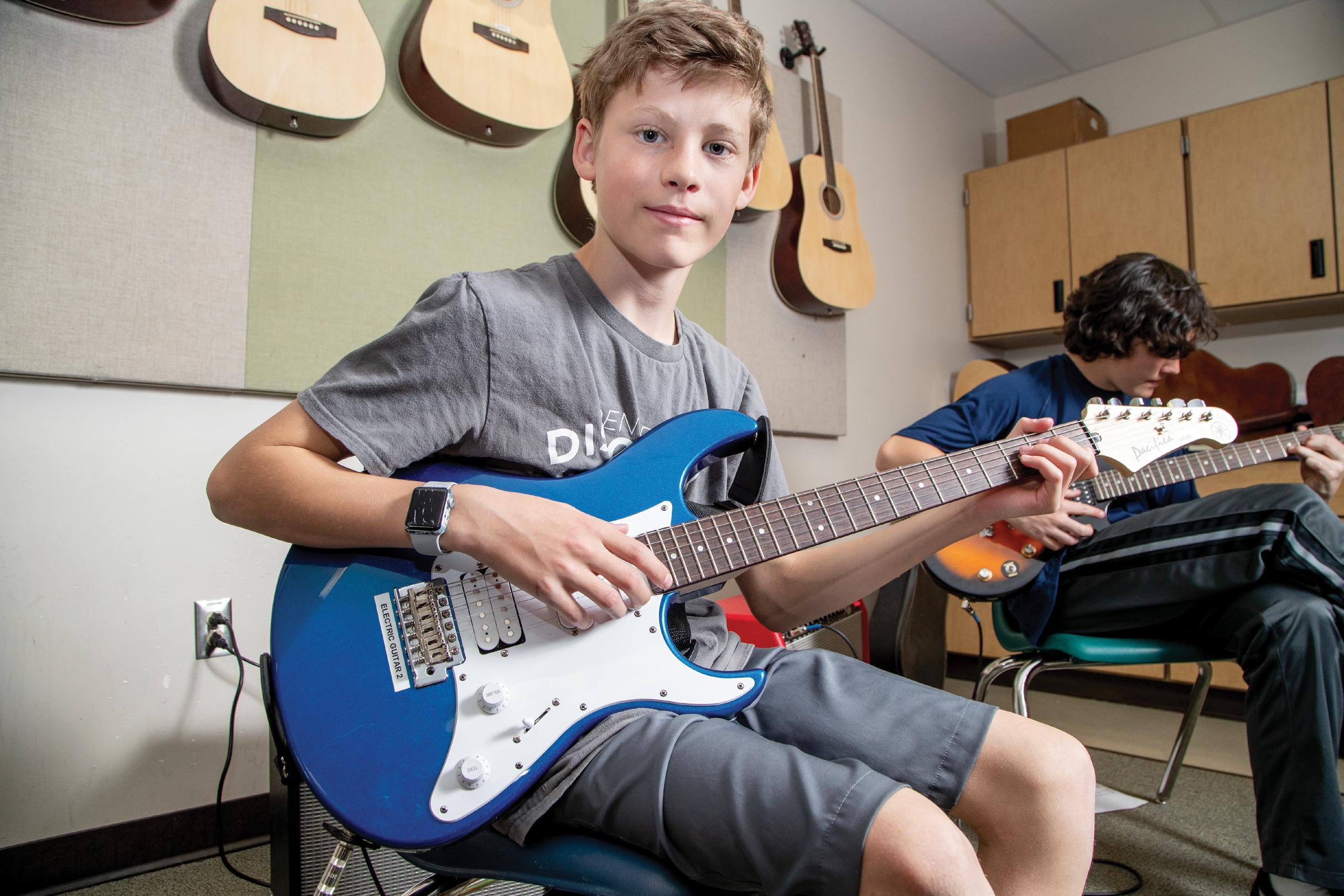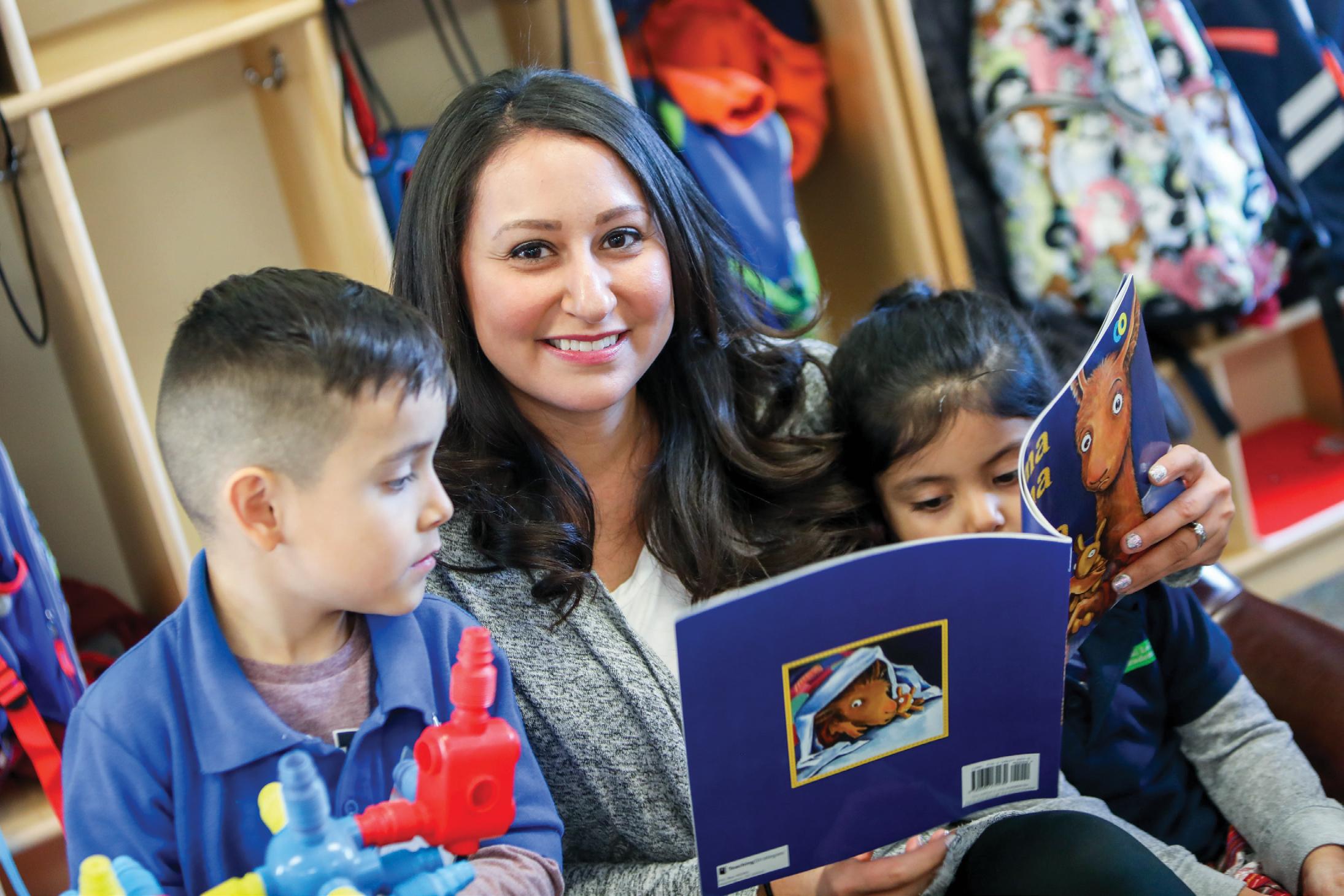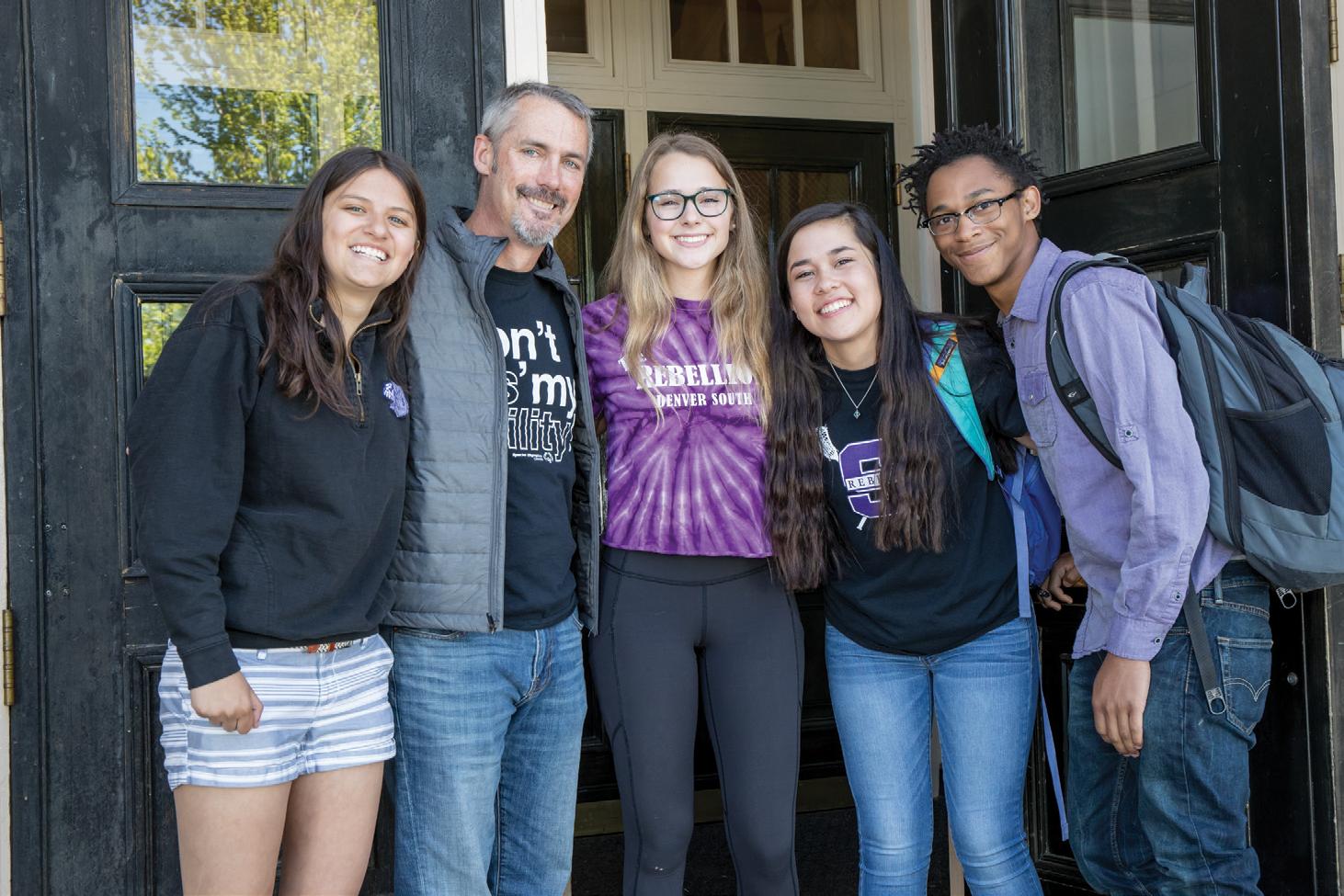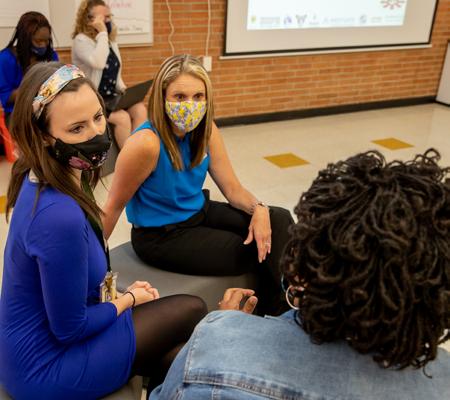
5 minute read
The Adult Experience
The Adult Experience: One DPS
We must build an adult experience that invigorates and unites us as individuals in our work as guides and champions of our students. All team members — our teachers, our administrators, our facilities staff, and everyone else who is part of Team DPS – must step into our roles as educators. We all have a critical role to play in ensuring Every Learner Thrives. Our success will only be possible through collaboration. As a team, we will operate as One DPS —recognizing our shared triumphs and relentlessly continuing to improve ourselves and the DPS experience. We will hold each other accountable to know and do better by building our mindsets and disrupting and redesigning equitable systems. We will ensure everyone has meaningful opportunities to grow from feedback, coaching, and development, and leave their mark on the DPS experience.
We will counter a narrative that views difference as a deficit and instead recognize our differences allow us to eliminate inequities in our system. The DPS experience will nurture individuals with diverse identities in our students, adults and community through intentional development, engagement, and relationships. We will recruit and retain team members who are working to make this a reality in our schools. As critical partners in transforming the DPS experience, we also know we need to engage our families, particularly of marginalized identities, by expanding engagement opportunities and cultivating community relationships. It is incumbent upon us to foster an adult experience that is safe and welcoming, that reflects our values and commitment to equity, and that invites, rather than resists, calls to action toward a just society.
Goals
1. Every member of Team DPS is an educator: each member of Team DPS sees themselves and each other as valued contributors and works together to achieve our vision that Every Learner Thrives.
2. Our workforce reflects the diverse identities of our learners so our students and families see themselves reflected in our schools and among our leadership.
3. Families of all identities participate in making decisions that affect their child’s educational experience.
Strategies
1. Culture of Collaboration:
• Build a mission-driven culture with reaffirmed values that recognize, honor and humanize our team members and unify and invigorate us around our collective actions. • Develop structures and routines that foster a systemic shift to increase collaboration and continuous improvement within our organization, including sharing of best practices across schools of all governance types. • Celebrate school and student successes to elevate impactful and transformative practices across district and school support.
Organizing our teams and schools to foster intentional collaboration
In Spring 2022, DPS reorganized the central office and restructured school supervision and support in order to promote greater collaboration across the district. Schools now have intentional structures - aptly named Collaboratives - that provide spaces for schools across the district to consistently and intentionally gather to share ideas, solve problems and bridge gaps together.
2. Developing and Reinforcing Mindsets:
• Build, reinforce and hold each other accountable to asset-based mindsets and practices that embrace diversity and advance equity and inclusion through professional learning, leadership development opportunities, and other culture-building experiences. • Establish a mindset of continuous improvement by fostering a culture of feedback, reflection through coaching, and growth through intentional development. • Recruit and retain a high quality workforce that is driven by a deep desire for equity in our schools and broader system.
3. Diverse Workforce:
• Strengthen and expand initiatives to recruit, hire, retain and advance team members of marginalized identities at all levels of the organization so that students see themselves reflected in our schools and among our leadership. • Ensure our team members receive total compensation packages (benefits, market adjustments, etc.) at or above market rate, as compared to other Denver metro districts.
4. Engagement and Communication:
• Deepen the way we engage, educate and communicate to encourage greater dialogue among our entire DPS community, with a focus on outreach to families and community members of marginalized identities. • Strengthen and establish advisory groups to increase the voice of marginalized groups. • Collaborate with community organizations to elevate community needs, aspirations and solutions.
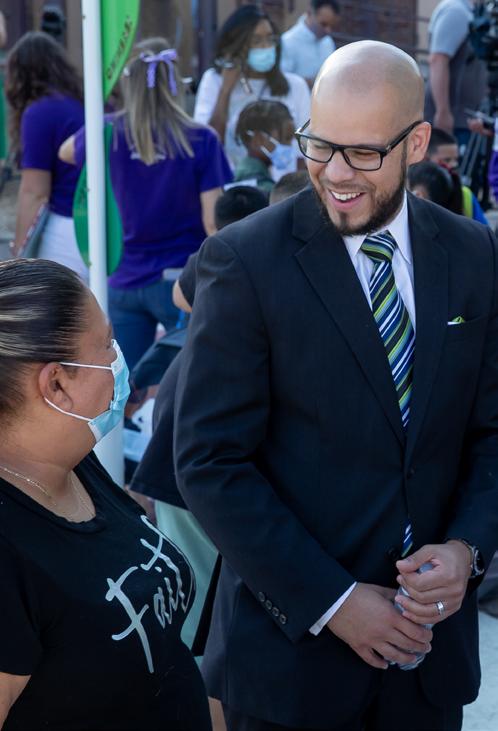
Seeking council from advisory groups
Dr. Alex Marrero began his superintendency prioritizing listening to members of the DPS community, particularly those who represent voices of our marginalized students and families. In order to provide ongoing opportunities for community members to share perspectives that inform decision making, Dr. Marrero created or re-established advisory councils, including: Asian Education Advisory Council (AEAC), the Black Education Advisory Council (BEAC), Latinx Education Advisory Council (LEAC), Multilingual Education District Accountability Committee, and the Special Education Advisory Council. Dr. Marrero is also continuing engagement with Native American and Vietnamese-speaking communities, the LGBTQIA+ community, and families experiencing transient housing.
Progress Measures 2022-26
1. Improve Culture Vitality Index by 10 percentage points:
a. Culture Vitality Index will be developed from surveys that measure:
i. Equity mindsets in employees. ii. How valued employees feel. iii. Employee perception of collaboration. iv. Employee perception of trust. v. Employee perception of support.
2. Continuous, positive movement toward a more reflective workforce:
Over the next 12 months, the Office of Talent will work collaboratively across the district to more deeply understand what student and staff needs are for a reflective workforce and develop a clear definition. After we have a clear definition, we will identify measures and targets over the following three years (2023 - 2026), to include:
a. Annual retention rates of staff of all identities. b. Measures of recruitment and hiring efforts for staff with diverse identities. c. 10 percentage point increase in students report in surveys that they see themselves reflected by the adults in their schools.
3. Improve participation of families of marginalized identities in district decision-making by 10 percentage points.
a. Participation will be measured by:
i. Event attendance. ii. Survey responses. iii. Parent-teacher conferences attendance. iv. Other measures to be determined.
4. Improve Family Experience Index for families of all identities by 10 percentage points:
a. Family Experience Index will be derived from surveys and supplemented with focus groups and interviews to measure:
i. How welcomed families feel. ii. Families being informed about their student(s)’ progress. iii. Families’ ability to participate in decisionmaking at the district and school levels.
